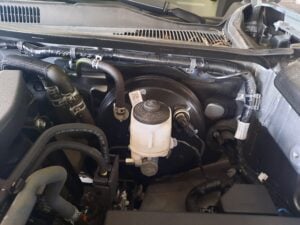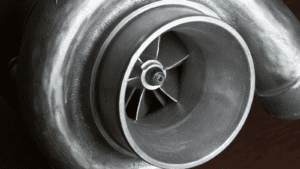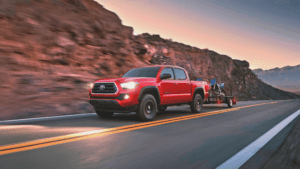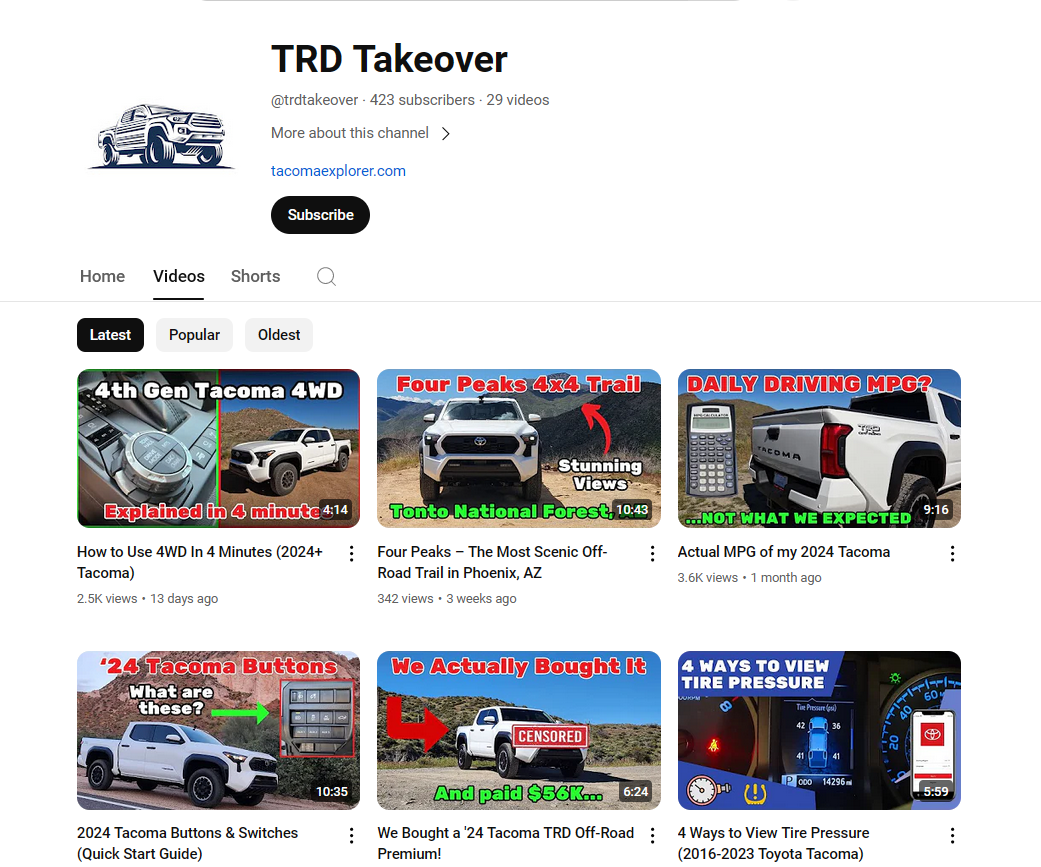Toyota Tacoma Gas Type (What You Should Actually Use)
Although some people swear that using premium gas improves your Tacoma's performance, that's not the case according to Toyota and mechanics.
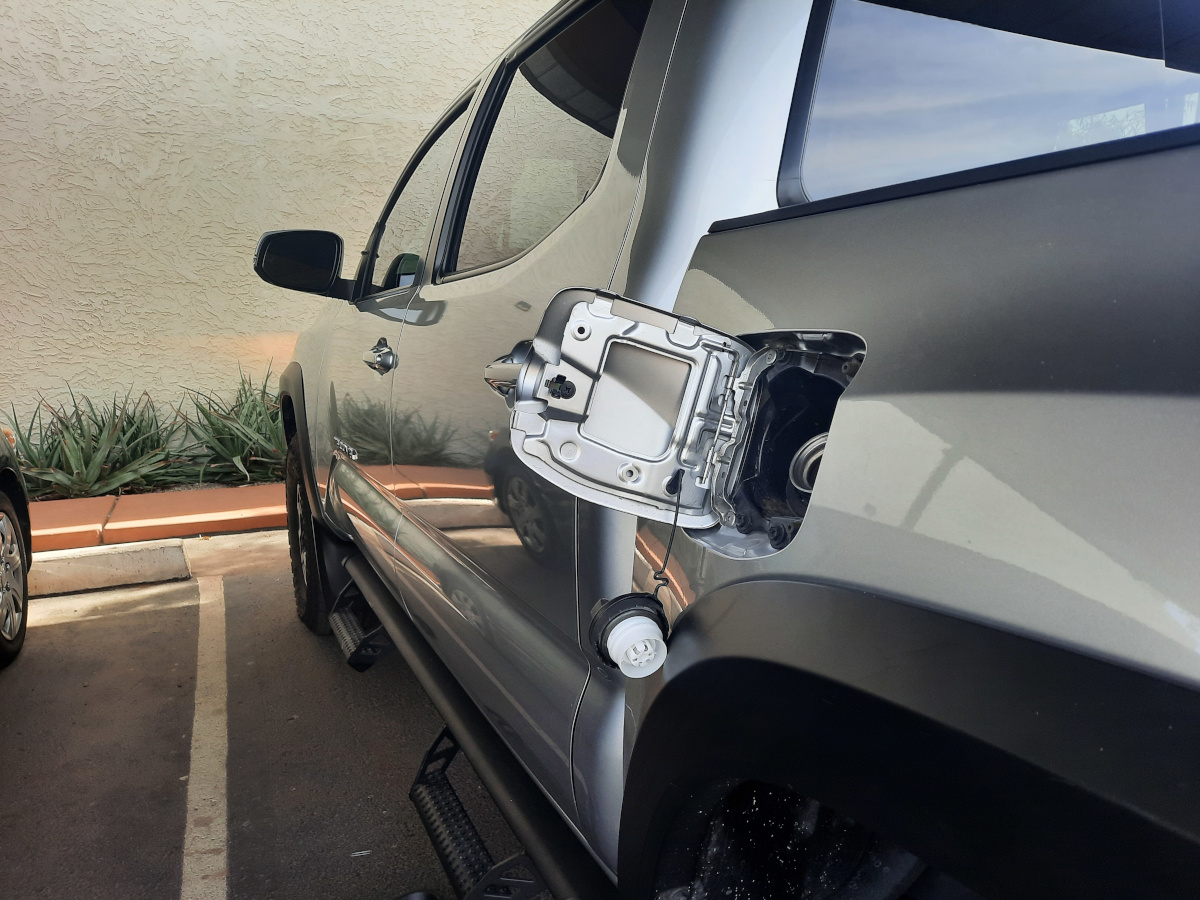
Key Points:
- According to Toyota, you should use unleaded, fuel with an octane rating of 87.
- Higher octane does not increase performance.
- Premium gas is not cleaner than regular gas.
- Fuel additives can be beneficial, especially for older Tacomas.
- Lower-than-recommended octane can cause engine knocking and valve chatter.
- Higher-than-recommended octane won't hurt your engine but is a waste of money.
With so many powertrain options available with today’s trucks, it can be difficult to know what type of fuel to use with a pickup. It’s necessary to look at the make and model of the vehicle to determine the best fuel type. With that in mind, what is the Toyota Tacoma gas type, and what happens if you use something else?
We show you what type of fuel to put in your Tacoma and also reveal the truth about some misconceptions you may believe. We further touch on the use of fuel additives and discuss some fuel system problems you may encounter.
Gasoline Type
It’s always best to read your owner’s manual for the exact requirements of any vehicle. Based on what Toyota has provided, you should only use unleaded, fuel with an octane rating of 87 in your Tacoma.
Using a lower octane rating could result in engine knocking and severe damage. While the Tacoma is compatible with octane rating 91 (premium), it isn’t proven to provide any more of a benefit over the regular unleaded.
Common Misconceptions
With how the internet is woven into every minute of our lives, it’s usually simple to find answers to all of your questions. However, it’s also easy to be led astray by false information. Therefore, we want to set the record straight on a couple of common misconceptions.
Higher Octane Increases Performance
Octane is the measurement showing how much compression the fuel can handle before it ignites. The higher the octane rating is, the more prevention there is from pre-ignition at high pressure. That’s why you often see performance cars with high-compression engines using a premium octane.
However, there’s very little reason to use a higher octane fuel when driving a Tacoma. Consider these vital points.
- In some vehicles, higher octane fuel improves performance and efficiency, but only by a few percent, and usually just while operating in severe conditions. You probably won’t notice a difference unless you tow heavy loads in hot weather.
- Higher octane fuel doesn’t make the Tacoma go any faster or increase horsepower.
- You spend more money on premium fuel for no measurable benefits.
Did you know that the government requires all octane grades to contain detergent additives to protect from buildup in the engine? For this reason, higher octane fuel isn’t even going to clean the engine any better than regular unleaded.
Additionally, it’s been said that higher octane fuel can help reduce mild engine knocking. As a professional mechanic, I can tell you this is true, but there are some things to know about this fact.
- Toyota engines rarely knock. In fact, most engines I’ve dealt with that knocked and benefited from higher-octane fuel were domestic brands (Chevy, Ford, Dodge).
- If the Toyota engine does begin knocking, you want to figure out why. It’s not wise to simply change the fuel and ignore the problem.
Your Toyota engine is designed to work with a delicate balance of both fuel and air. If you want to increase the power output, it’s necessary to change how much fuel and air are entering the system. Consider the benefits of installing a cold air intake or performance exhaust instead.
With that said, you may need to consider upgrading to high-octane fuel if you have a supercharged or twin-turbocharged Toyota Tacoma.
(Fuel Freedom, U.S. Department of Energy)
Premium Gas Cleans Your Engine
As touched on briefly in the last section, premium fuel isn’t going to clean your Tacoma engine any better than regular unleaded.
According to FTC.gov, high octane isn’t any better than regular octane at preventing engine deposits, removing them, or cleaning the engine. All octane grades are federally mandated to have cleaning detergents added to remove harmful deposits.
The only way to ensure better cleaning ability is to visit a TOP TIER™ gas station. This certification was first introduced in 2004 and is given to fuel stations that use gasoline designed to provide superior deposit control with better additives. As a mechanic, I regularly search out these stations because I’ve personally seen the benefit they add.
Using Fuel Additives
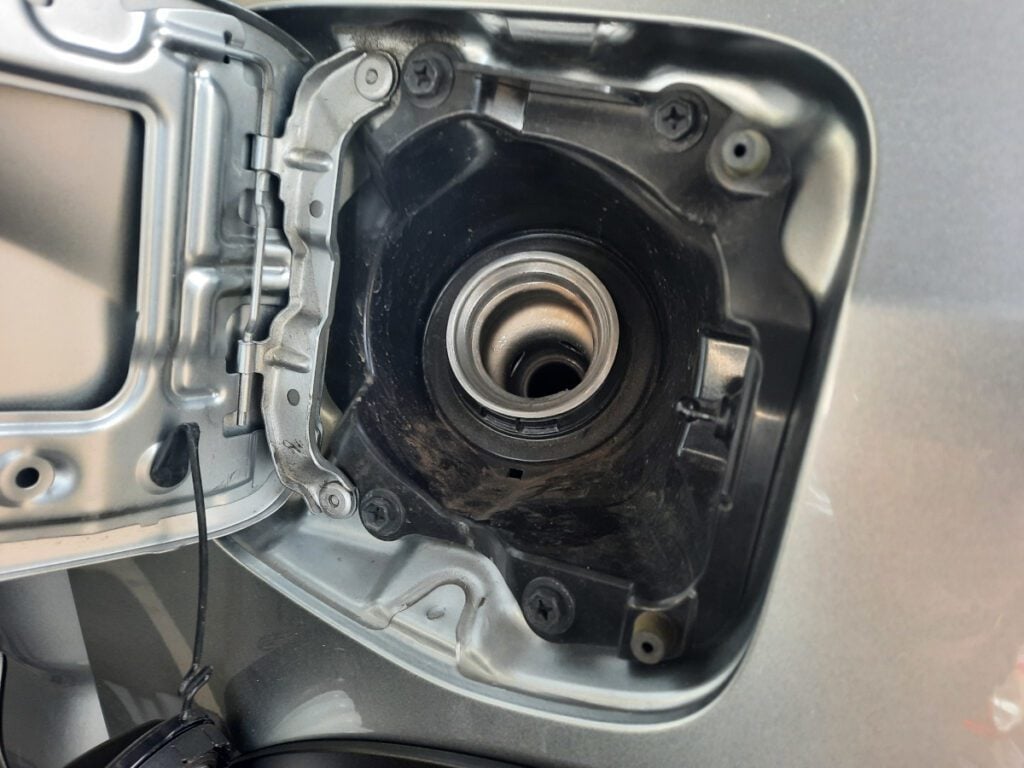
You may have heard of the many benefits of fuel additives and wondered if they should be used in your Tacoma. Here are some things you should know.
What are They, and what do they do?
Fuel additives are specially-formulated compounds that enhance the efficiency and quality of gasoline. They are also available for diesel, kerosene, and other fuels. Some additives increase the octane rating, lubricate the system and provide corrosion resistance.
Fuel additives can serve the following functions:
- Clean the system of deposits
- Improve the flow of gasoline through the system
- Lubricate for better performance and a longer life
- Prevent gasoline from freezing in the tank
- Preserve the gas for storage
Do They make a difference?
It’s tough to know for sure, even though everyone has an opinion. Unless you can track multiple vehicles and take apart the engines to see the results, it would be impossible to make an accurate call.
However, most automotive experts agree that maintaining the car is what is most important to longevity. If you are taking care of your newer Tacoma, a fuel additive isn’t probably going to make much difference.
On the other hand, if your truck has high mileage or it’s an older Tacoma, you may find some benefit to using a fuel additive.
Does Toyota recommend Using Them?
The Toyota Owner’s Manual doesn’t have a lot to say about the use of additives. However, there are some things strongly recommended in the manual.
- Use gasoline with detergent additives to avoid deposit buildup
- Use TOP TIER gasoline
- Use gasoline containing ethanol and ethers to reduce vehicle emissions
- Do not use gasoline containing methanol
- Do not use gasoline with MMT, or the emission control system could suffer
Identifying Fuel Issues
Using the wrong octane fuel can cause some trouble. Here are a few things to know about an issue with the fuel.
Octane Is Too Low
- If you put a lower octane than recommended by the manufacturer, you may notice a decrease in fuel economy and performance
- Using lower octane fuel can lead to engine knocking or valve chatter because it can’t burn properly
- Lower octane fuel can damage the engine
It’s important to switch back to the right octane as soon as you notice the mistake.
Octane Is Too High
Putting higher octane fuel in the tank isn’t going to cause any major damage. You will spend more money for little to no difference in performance. In some cases, it may actually hinder the responsiveness of the engine.
Switch back to the recommended octane to save money and experience your vehicle the way it was designed.
Common Gasoline Terminology
Octane Ratings
The octane rating measures fuel stability. Each rating is based on the pressure when the fuel spontaneously combusts (auto-ignites). In the United States, there are three main grades of unleaded gasoline.
- Regular (87): Typically used by most passenger vehicles as the lowest-grade unleaded octane
- Midgrade (89-90): Mid-range octane level
- Premium (91-94): Highest octane fuel, usually reserved for premium and performance vehicles
Unleaded vs. Leaded
Leaded gasoline is no longer sold in the United States. This fuel contains tetraethyl lead, designed to reduce engine knock and boost octane ratings. Unleaded gasoline is sold without this additive.
Ethanol Percentages
Ethanol is produced from plant material, such as grass, sugar cane, or corn. There are several types of ethanol-based gasoline available in the United States.
- E10 and E15: Most unleaded gas is E10 (up to 10% ethanol). E15 contains up to 15% ethanol, which is only designed for some vehicles starting in the 2001 model year and flex-fuel vehicles.
- E85 (Flex Fuel): This blend contains 51% to 83% ethanol, depending on the season and location. Summer blends usually contain more ethanol, with winter having the lowest because of availability. E85 can only be used in flex-fuel vehicles.
Related Content
Keep Your Tacoma Running Strong
With proper maintenance and the right fuel, you can keep your Tacoma on the road for many years to come. Follow all the recommendations in your owner’s manual and perform all of the scheduled maintenance.
If you need further guidance on how to care for your Tacoma, it’s best to visit a local dealership or Toyota mechanic.

